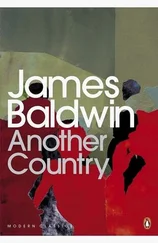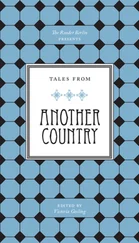Robert Silverberg - In Another Country
Здесь есть возможность читать онлайн «Robert Silverberg - In Another Country» весь текст электронной книги совершенно бесплатно (целиком полную версию без сокращений). В некоторых случаях можно слушать аудио, скачать через торрент в формате fb2 и присутствует краткое содержание. Год выпуска: 2014, ISBN: 2014, Издательство: Subterranean Press, Жанр: Фантастика и фэнтези, на английском языке. Описание произведения, (предисловие) а так же отзывы посетителей доступны на портале библиотеки ЛибКат.
- Название:In Another Country
- Автор:
- Издательство:Subterranean Press
- Жанр:
- Год:2014
- ISBN:978-1-59606-693-9
- Рейтинг книги:4 / 5. Голосов: 1
-
Избранное:Добавить в избранное
- Отзывы:
-
Ваша оценка:
- 80
- 1
- 2
- 3
- 4
- 5
In Another Country: краткое содержание, описание и аннотация
Предлагаем к чтению аннотацию, описание, краткое содержание или предисловие (зависит от того, что написал сам автор книги «In Another Country»). Если вы не нашли необходимую информацию о книге — напишите в комментариях, мы постараемся отыскать её.
In Another Country — читать онлайн бесплатно полную книгу (весь текст) целиком
Ниже представлен текст книги, разбитый по страницам. Система сохранения места последней прочитанной страницы, позволяет с удобством читать онлайн бесплатно книгу «In Another Country», без необходимости каждый раз заново искать на чём Вы остановились. Поставьте закладку, и сможете в любой момент перейти на страницу, на которой закончили чтение.
Интервал:
Закладка:
They applauded each other resoundingly.
Her eyes were shining with delight. “Oh, Thimiroi—Thimiroi—what a marvelous singer you are! And what a marvelous song!”
“And how cunningly you wove your accompaniment into it.”
“That wasn’t really hard.”
“For you, perhaps. You have a great musical gift, Christine.”
She reddened and looked away.
“What language were you singing in?” she asked, after a time.
“The language of my country.”
“It was so strange. It isn’t like any language I’ve ever heard. Why won’t you tell me anything about where you come from, Thimiroi?”
“I will. Later.”
“And what did the words mean?”
“It’s a poem about—about journeying to far lands, and seeing great wonders. A very romantic poem, perhaps a little silly. But the poet himself is also very romantic and perhaps a little silly.”
“What’s his name?” she asked.
“Thimiroi.”
“You?” she said, grinning broadly. “Is that what you are? A poet?”
“I sometimes write poetry, yes,” he said, beginning to feel as uneasy as she had seemed when he was trying to praise her playing. They looked at each other awkwardly. Then he said, “May I try the piano?”
“Of course.”
He sat down, peered at the keys, touched one of the white ones experimentally, then another, another. What were the black ones? Modulators of some sort? No, no, their function was very much like that of the white ones, it seemed. And these pedals here—
He began to play.
He was dreadful at first, but quickly he came to understand the relationship of the notes and the range of the keyboard and the proper way of touching the keys. He played the piece that she had played for him before, exactly at first, then launching into a set of subtle variations that carried him farther and farther from the original, into the musical modes of his own time. The longer he played, the more keenly he appreciated the delicacy and versatility of this ancient instrument; and he knew that if he were to study it with some care, not merely guess his way along as he was doing now, he would be able to draw such wonders from it as even great composers like Cenbe or Palivandrin would find worthwhile. Once again he felt humbled by the achievements of this great lost civilization of the past. Which to brittle, heartless people like Hollia or Omerie must seem a mere simple primitive age. But they understood nothing. Nothing.
He stopped playing, and looked back at Christine.
She was staring at him in horror, her face pale, her eyes wide and stricken, tears streaking her cheeks.
“What’s wrong?” he asked.
“The way you play—” she whispered. “I’ve never heard anyone play like that.”
“It is all very bad, I know. But you must realize, I have had no formal training in this instrument, I am simply inventing a technique as I go—”
“No. Please. Don’t tell me that. You mustn’t tell me that!”
“Christine?”
And then he realized what the matter was. It was not that he had played badly; it was that he had played so well. She had devoted all her life to this instrument, and played it with great skill, and even so had never been able to attain a level of proficiency that gave her any real satisfaction. And he, never so much as having seen a piano in his life, could sit down at it and draw from it splendors beyond her fondest hope of achieving. His playing was unorthodox, of course, it was odd and even bizarre, but yet she had seen the surpassing mastery in it, and had been stunned and chagrined and crushed by it, and stood here now bewildered and confounded by this stranger she had brought into her own home—
I should have known better, Thimiroi thought. I should have realized that this is her art, and that I, with all the advantages that are mine purely by virtue of my having been born when I was, ought never to have presumed to invade her special territory with such a display of skills that are beyond her comprehension. Without even suspecting what I was doing, I have humiliated her.
“Christine,” he murmured. “No. No, Christine.”
Thimiroi went to her and pulled her close against him, and kissed the tears away, and spoke softly to her, calming her, reassuring her. He could never tell her the truth; but he could make her understand, at least, that he had not meant to hurt her. And after a time he felt the tension leave her, and felt her press herself tight to him, and then their lips met, and she looked up, smiling. And took him lightly by the hand, and drew him from the room and down the hall.
Afterward, as he was dressing, she touched the long, fading red scar on his arm and said, “Were you in some kind of accident?”
“An inoculation,” he told her. “Against disease.”
“I’ve never seen one like that before.”
“No,” he said. “I suppose you haven’t.”
“A disease of your country?”
“No,” he said, after a time. “Of yours.”
“But what kind of disease requires a vaccination like—”
“Do we have to talk of diseases just now, Christine.”
“Of course not,” she said, smiling ruefully. “How foolish of me. How absurd.” She ran her fingers lightly, almost fondly, over the inoculation scar a second time. “Of all things for me to be curious about!” Softly she said, “You don’t have to leave now, you know.”
“But I must. I really must.”
“Yes,” she said. “I suppose you must.” She accompanied him to the front door. “You’ll call me, won’t you? Very soon?”
“Of course,” Thimiroi said.
Night had fallen. The air was mild and humid, but the sky was clear and the stars glittered brilliantly. He looked for the moon but could not find it.
How many days remain, he wondered?
Somewhere out there in the airless dark a lump of dead rock was falling steadily toward earth, falling, falling, inexorably coming this way. How far away was it now? How soon before it would come roaring over the horizon to bring unimaginable death to this place?
I must find a way of saving her, he told himself.
The thought was numbing, dizzying, intolerably disturbing.
Save her? How? Impossible. Impossible. It was something that he must not even allow himself to consider.
And yet—
Again it came. I must find a way of saving her .
There was a message for him at his hotel, just a few quick scrawled sentences:
Party at Lutheena’s. We’re all going. See you there?
Laliene’s handwriting, which even in her haste was as beautiful as the finest calligraphy. Thimiroi crumpled the note and tossed it aside. Going to a party tonight was very close to the last thing he would want to do. Everyone in glittering clothes, making glittering conversation, trading sparkling anecdotes, no doubt, of their latest adventures among the simple sweaty blotchyskinned folk of this interestingly raucous and crude century—no. No. No. Let them trade their anecdotes without him. Let them sip their euphoriac and exchange their chatter and play their little games. He was going to bed. Very likely, without him there, they would all be talking about him. How oddly he had been behaving, how strange and uncouth he seemed to be becoming since their arrival in this era. Let them talk. What did it matter?
He wished Kleph had not seen him going into Christine’s house, though.
But how would Kleph know whose house it was? And why would Kleph—Kleph, with her own Oliver Wilson entanglement preoccupying her—want to say anything to anyone about having seen some other member of the tour slipping away for an intimate hour with a twentieth-century person? Better for her to be silent. The subject was a delicate one. She would not want to raise it. She of all people would be unlikely to disapprove, or to want to bring down on him the disapproval of the others. No, Thimiroi thought. Kleph will say nothing. We are allies in this business, Kleph and I.
Читать дальшеИнтервал:
Закладка:
Похожие книги на «In Another Country»
Представляем Вашему вниманию похожие книги на «In Another Country» списком для выбора. Мы отобрали схожую по названию и смыслу литературу в надежде предоставить читателям больше вариантов отыскать новые, интересные, ещё непрочитанные произведения.
Обсуждение, отзывы о книге «In Another Country» и просто собственные мнения читателей. Оставьте ваши комментарии, напишите, что Вы думаете о произведении, его смысле или главных героях. Укажите что конкретно понравилось, а что нет, и почему Вы так считаете.












